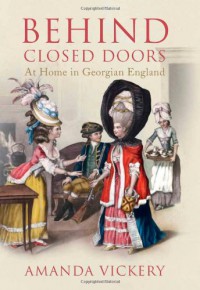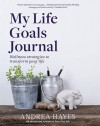life in Georgian England

It's about living in Georgian England and what the household politics would probably have been like. The life and times of people from a few sources, the accounts books (apparently women did the household accounts and the men did the estate books); diaries; merchant accounts and letters mostly. It was interesting to see where the roots of the tradition of a parlour in Ireland was, and this was where I had problems with the book. The period traditions were treated as alien things, not things that have echoed down the ages and some of the commentary about furniture failed to see how and why someone might want to, in a house that is largely their husband's, a space of their own, even if it was only a desk. And where someone might decide to, when faced with someone who didn't respect their space (which would probably have been often in a world where women were regarded as ornaments rather than people) they would have procured things for themselves that would have been seen by the men as wrong to use, whether that was style or size. A desk suited to a small woman would have been difficult for a large man to use. I didn't see the author see subversion in these things, or see the widow buy many tea pots because her husband belittle her "tea habit". Humankind hasn't changed much, just the decorations.
The author also attests that yellow isn't seen in heraldry and therefore isn't caught up in symbolism. Yellow and gold were inter-changable in heralry (for the most part, it's a little more complicated than that but it is largely thus) and were given a lot of the same attributes and two minutes with a reasonable heraldry book would give you this information, hell two minutes with the Heradry Society website and their introduction to Heraldry PDF (page 10) would tell you what you need to know about yellow/gold (sweet they have rules for same-sex marriage crests...https://www.college-of-arms.gov.uk/resources/same-sex-marriages, their wages are a joke and actually if you examine them are the same as they were in 1831 only translated from £Sd to Decimal, I'd much rather be a herald in Ireland than the UK); yes I know too much about the topic.
Honestly this is the only way to really test a book, to test what you know against it and then see where there are flaws and then determine if you trust the rest, I don't know any better.
It's not a bad read, a little dry in places but interesting to show how people of a different time lived.
 2
2



















